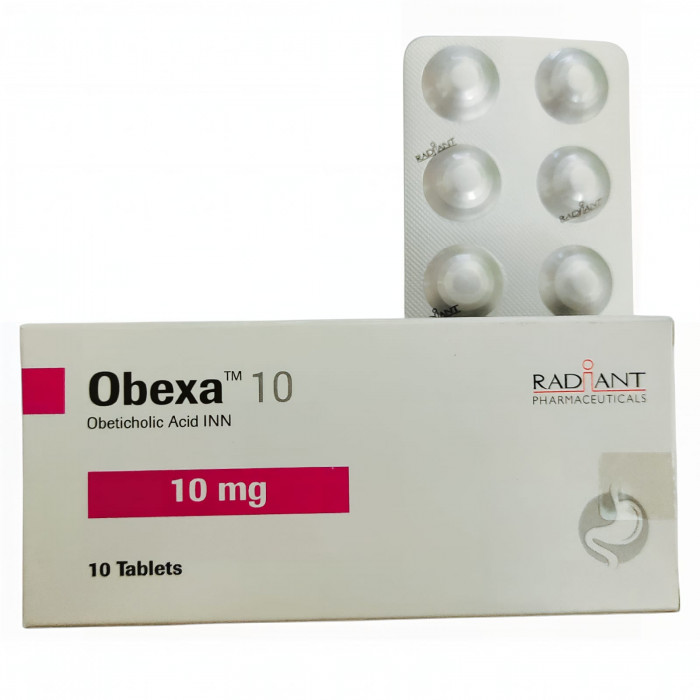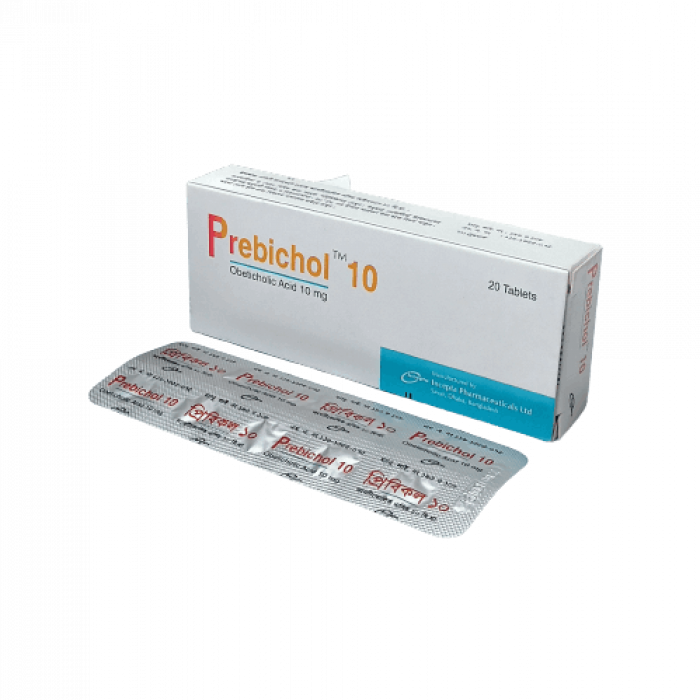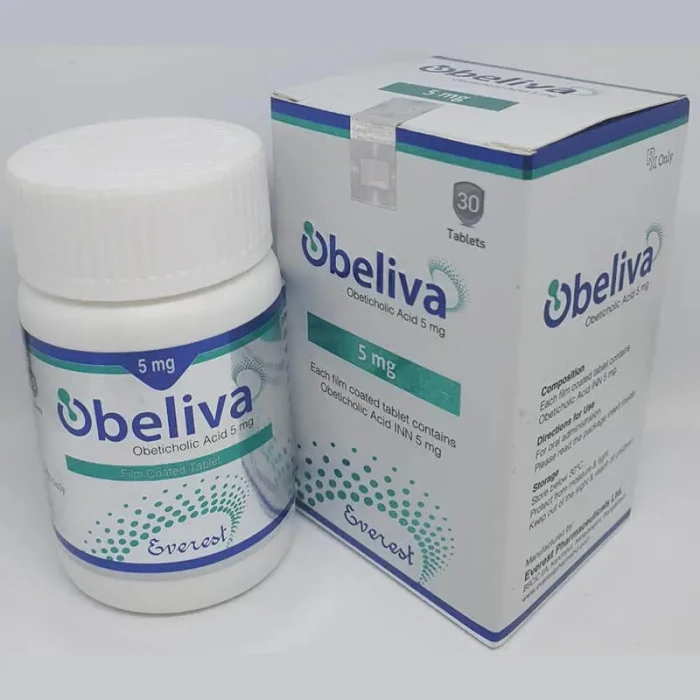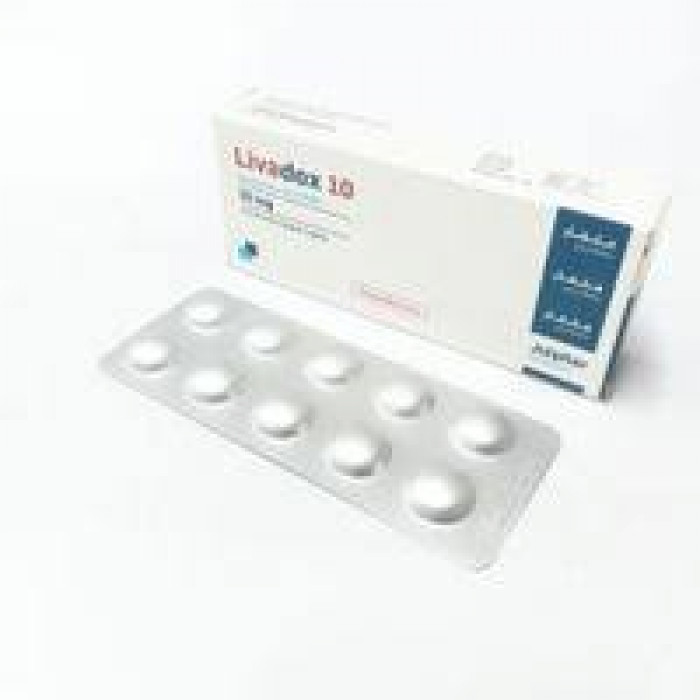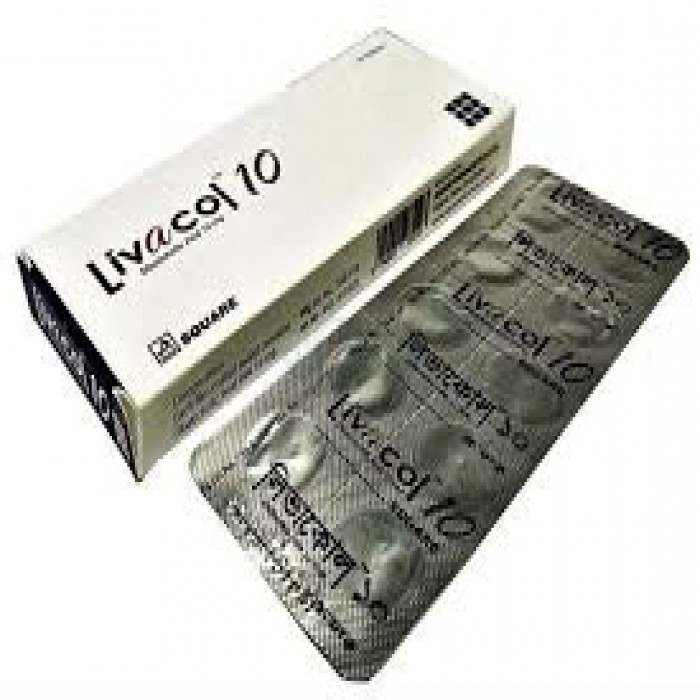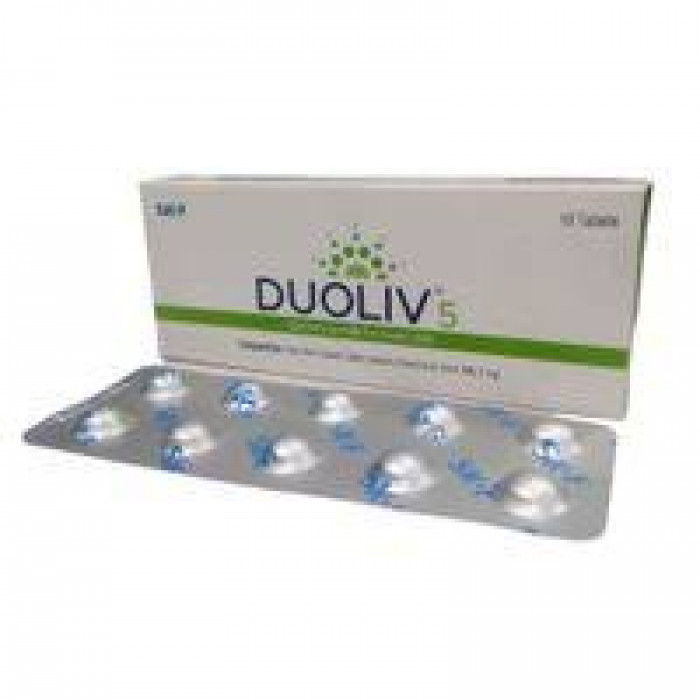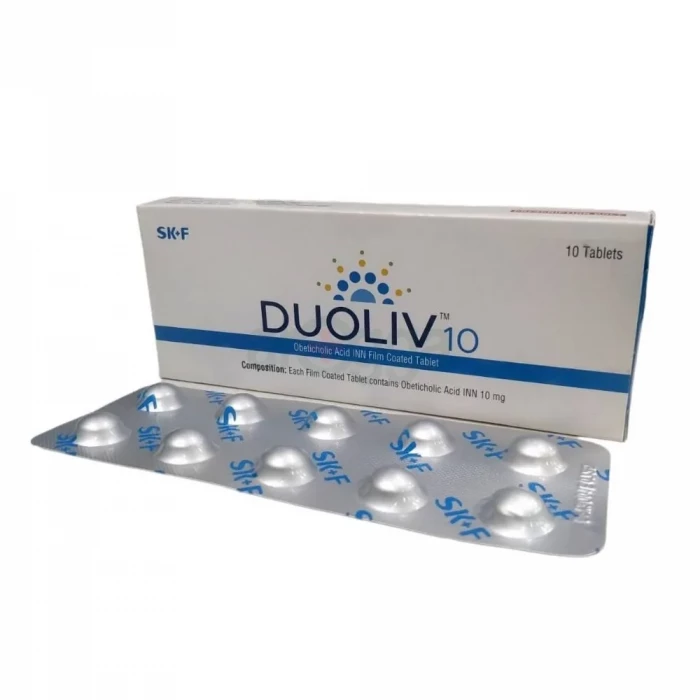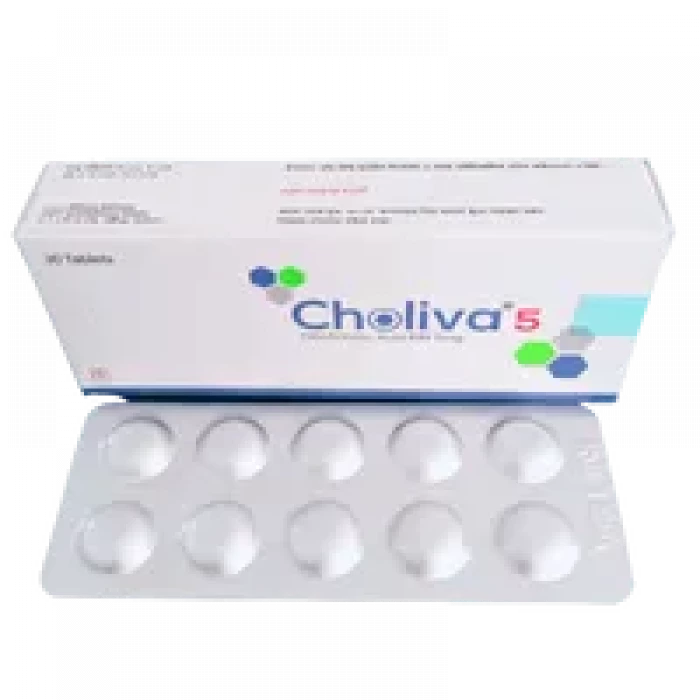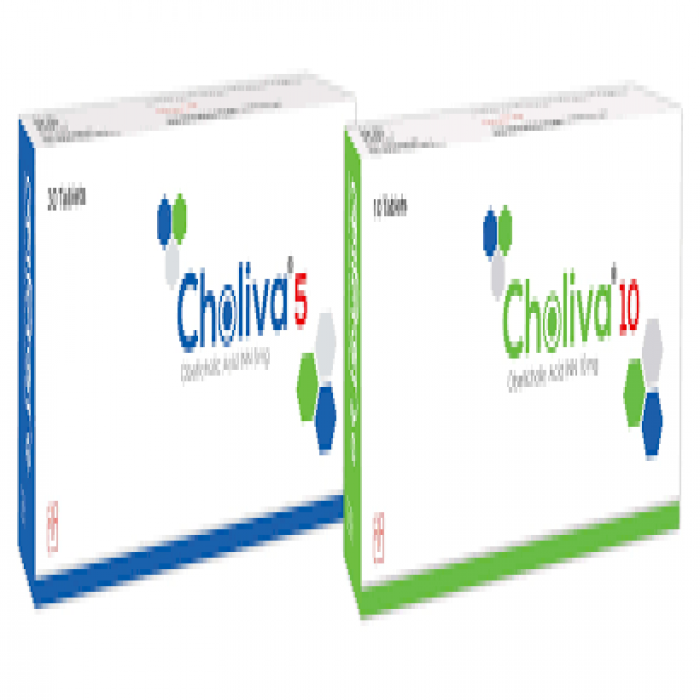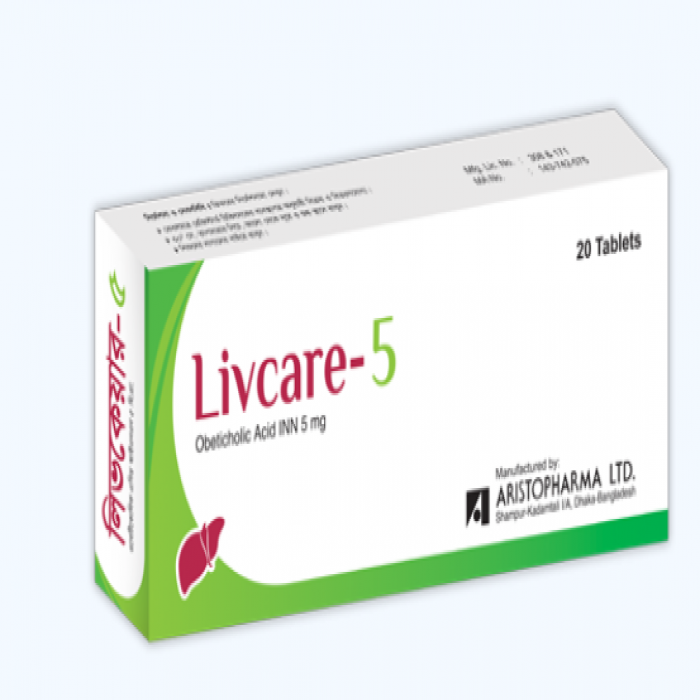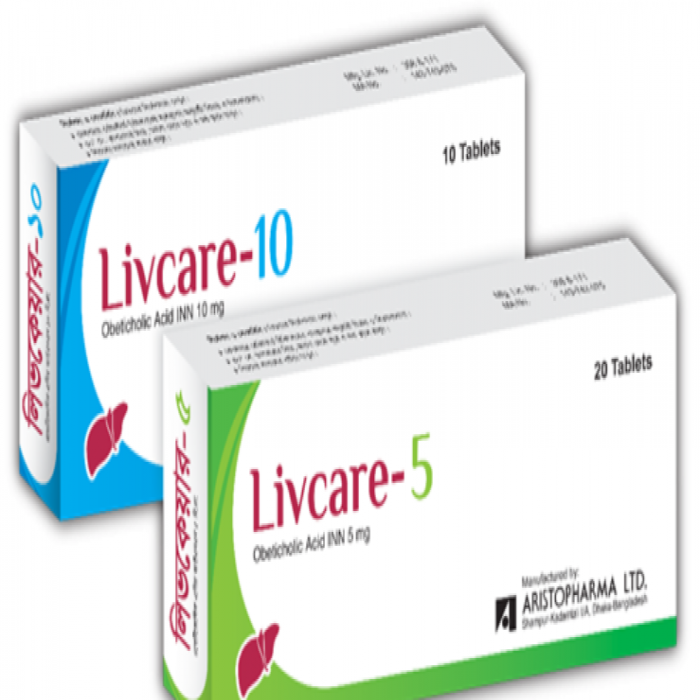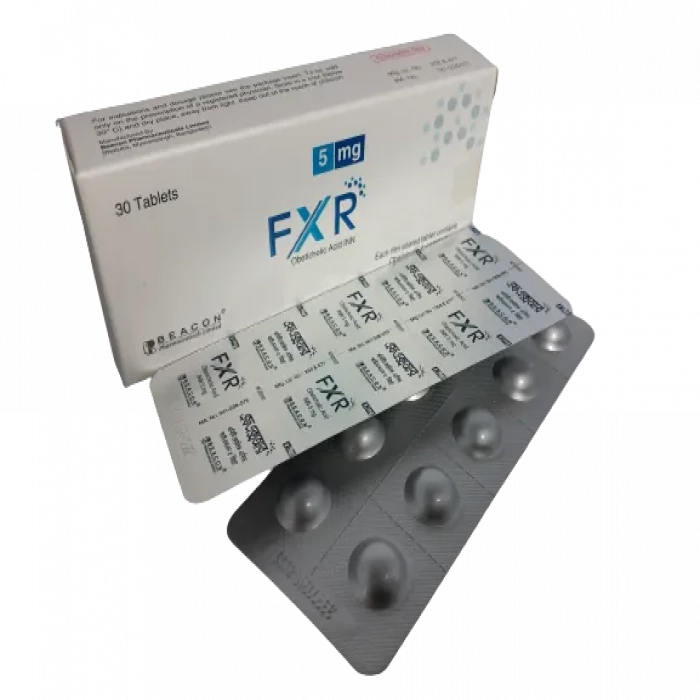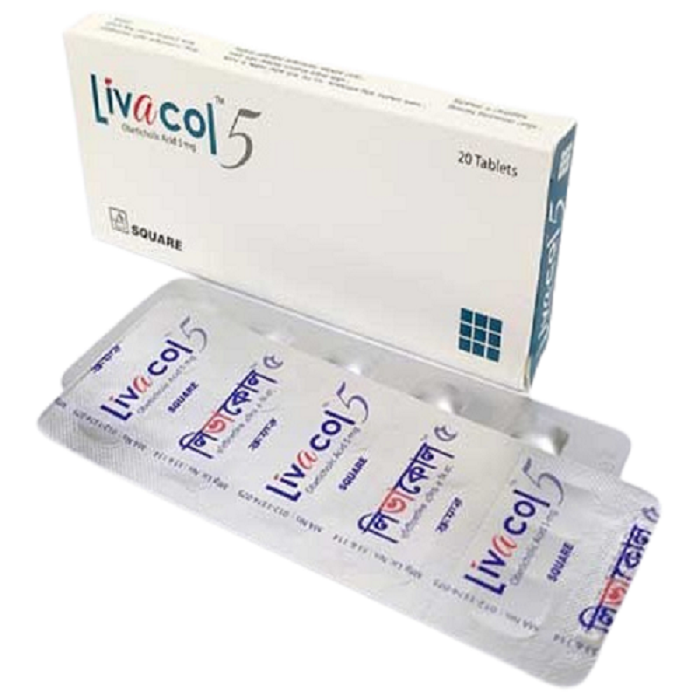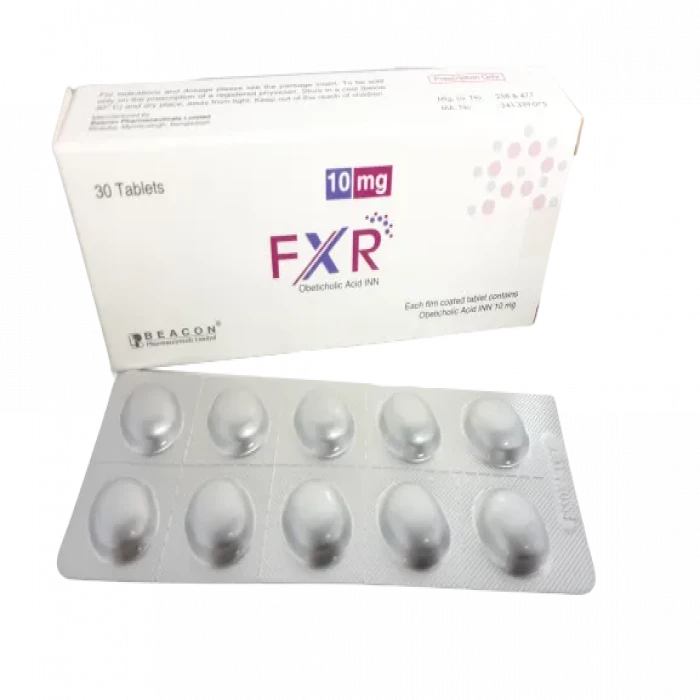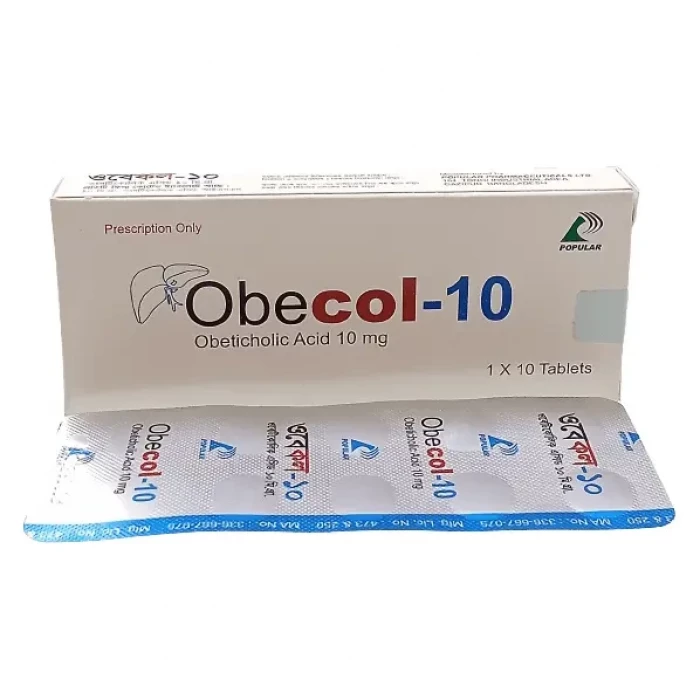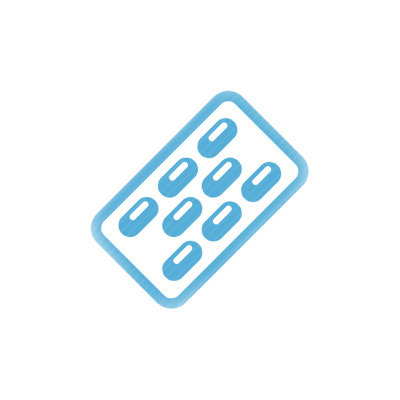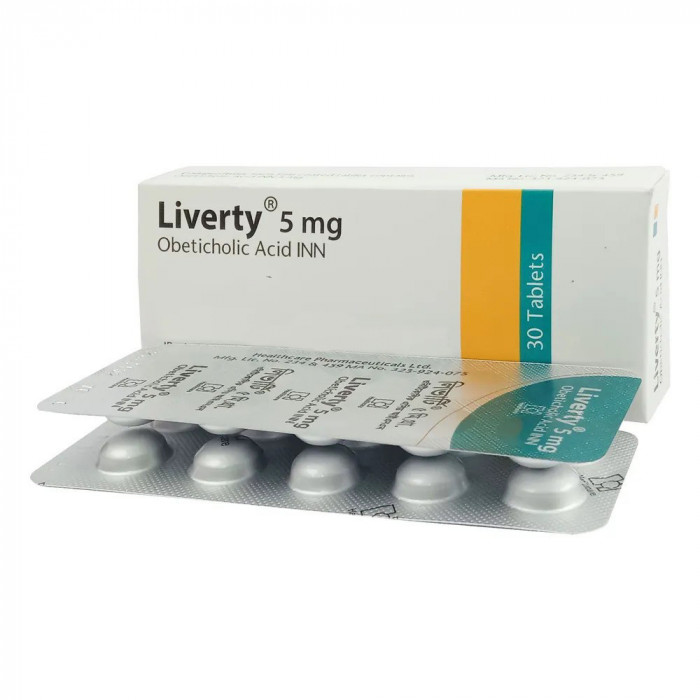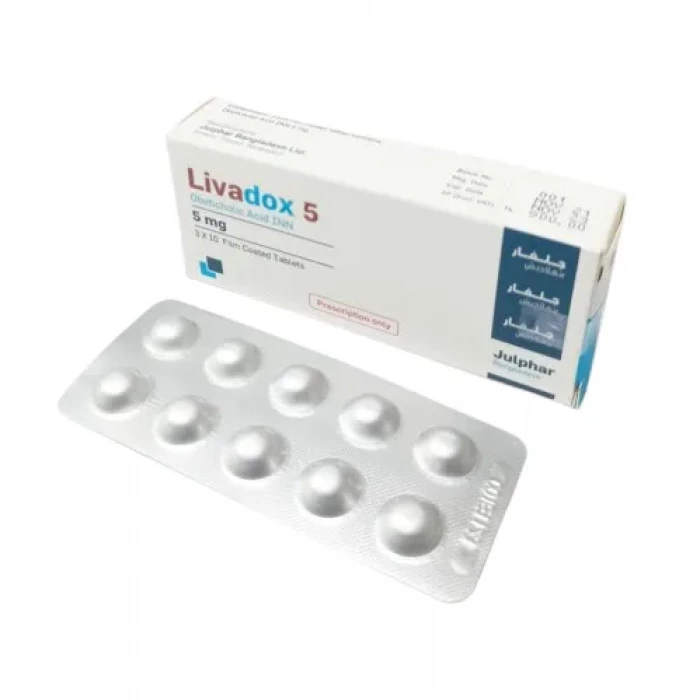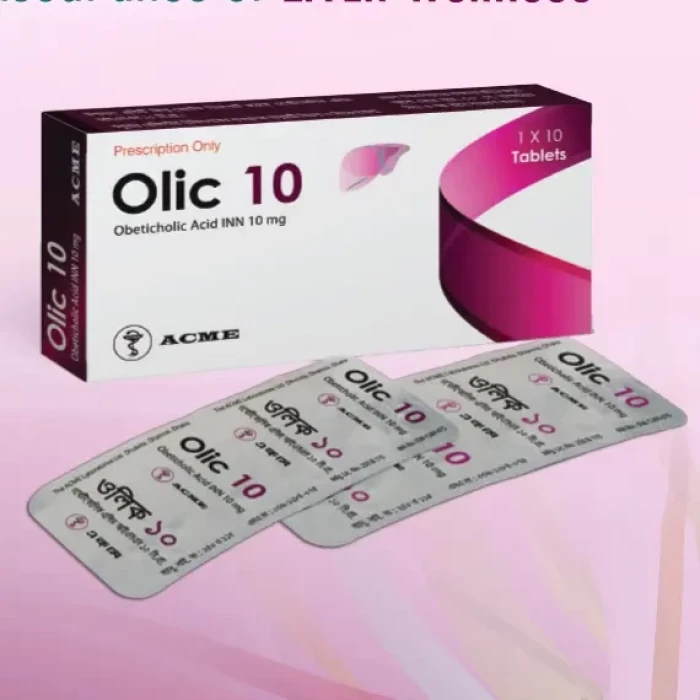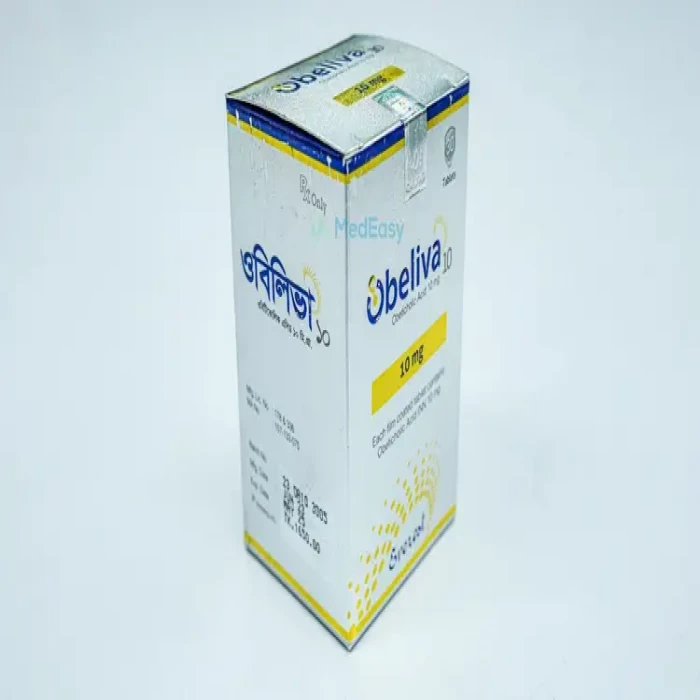
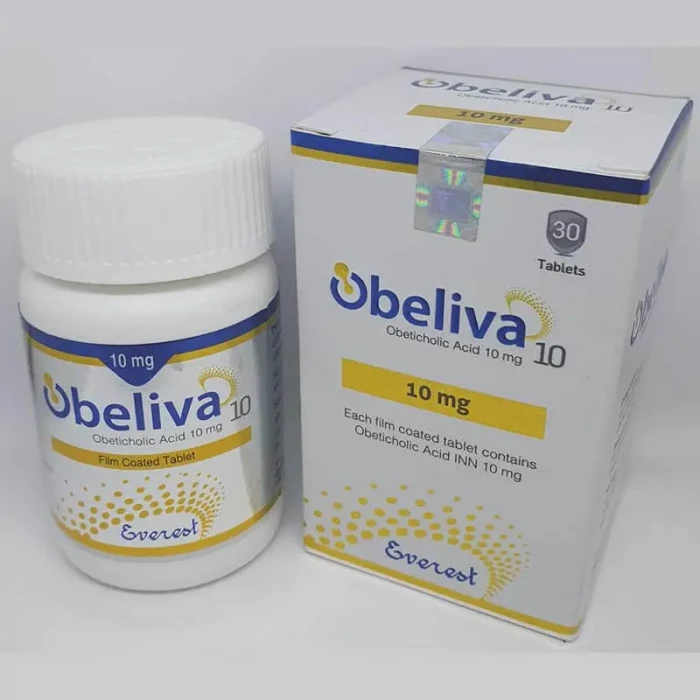
✔ 100% Authentic Product
👁️ Currently Viewing 3778
Obeliva 10mg Tablet-30pcs Pot
Obeliva 10mg Tablet is used alone or in combination with treatment for certain liver diseases (primary biliary cholangitis-PBC). This disease slowly destroys the bile ducts in the liver. When bile ducts are damaged, harmful substances can build up in the bile and scar the liver.
Discount
Price: ৳ 1,617
MRP:
৳
1650
2%
Off

100% Genuine Products, Guaranteed

Safe & Secure Payments, Always

Fast, Secure & Efficient Delivery

Proper Packaging
 Cash on Delivery - All over Bangladesh
Cash on Delivery - All over Bangladesh Regular Delivery - 12-24 Hours, Dhaka City* Charge Tk.39-59
Regular Delivery - 12-24 Hours, Dhaka City* Charge Tk.39-59 Regular Delivery - 24-48 Hours, Other Cities* Charge Tk.99-110
Regular Delivery - 24-48 Hours, Other Cities* Charge Tk.99-110
🌙 রমযান অফার 🌙
 ফ্রি ডেলিভারিঃ - ৭৯৯ টাকা+ অর্ডারে, ঢাকা
শহরে
ফ্রি ডেলিভারিঃ - ৭৯৯ টাকা+ অর্ডারে, ঢাকা
শহরে ফ্রি ডেলিভারিঃ - ২৭৯৯ টাকা+ অর্ডারে, ঢাকার
বাহিরে
ফ্রি ডেলিভারিঃ - ২৭৯৯ টাকা+ অর্ডারে, ঢাকার
বাহিরে
📲 মোবাইল অ্যাপ অর্ডারে সাশ্রয় বেশী
-
Google Play Store থেকে ডাউনলোড
-
Apple Store থেকে ডাউনলোড
100% Genuine Products, Guaranteed
Safe & Secure Payments, Always
Fast, Secure & Efficient Delivery
Proper Packaging
 Cash on Delivery - All over Bangladesh
Cash on Delivery - All over Bangladesh Regular Delivery - 12-24 Hours, Dhaka City* Charge Tk.39-59
Regular Delivery - 12-24 Hours, Dhaka City* Charge Tk.39-59 Regular Delivery - 24-48 Hours, Other Cities* Charge Tk.99-110
Regular Delivery - 24-48 Hours, Other Cities* Charge Tk.99-110 ফ্রি ডেলিভারিঃ - ৭৯৯ টাকা+ অর্ডারে, ঢাকা
শহরে
ফ্রি ডেলিভারিঃ - ৭৯৯ টাকা+ অর্ডারে, ঢাকা
শহরে ফ্রি ডেলিভারিঃ - ২৭৯৯ টাকা+ অর্ডারে, ঢাকার
বাহিরে
ফ্রি ডেলিভারিঃ - ২৭৯৯ টাকা+ অর্ডারে, ঢাকার
বাহিরে- Google Play Store থেকে ডাউনলোড
- Apple Store থেকে ডাউনলোড
🌙 রমযান অফার 🌙
📲 মোবাইল অ্যাপ অর্ডারে সাশ্রয় বেশী
✅ Description:
Obeticholic Acid is categorized as a Farnesoid X-receptor agonist, and it is employed in the treatment of primary biliary cirrhosis, also known as primary biliary cholangitis. This condition is an autoimmune disease that results in damage to the bile ducts in the liver. Biliary cirrhosis, in turn, leads to the accumulation of bile in the liver, causing liver damage.
Obeliva 10mg Tablet contains 'Obeticholic acid' as its active ingredient, which enhances liver function by reducing the production and buildup of bile within the liver, increasing the removal of bile from the liver, and reducing inflammation. These mechanisms collectively contribute to the treatment of primary biliary cirrhosis.
It is essential to adhere to your doctor's prescribed regimen when taking Obeticholic Acid. In some instances, you may experience common side effects, including stomach pain, tiredness, dizziness, constipation, and palpitations. Most of these side effects are typically mild and resolve gradually over time. Nevertheless, if these side effects persist or worsen, it is advisable to consult your doctor.
Safety Advices

Alcohol
CONSULT YOUR DOCTOR
It is not known if alcohol interacts with Obeliva 10mg Tablet. Consult your doctor if you have any concerns.

Pregnancy
UNSAFE
Please consult your doctor if you are pregnant, as limited information is available regarding the usage of Obeliva 10mg Tablet during pregnancy.

Breastfeeding
CONSULT YOUR DOCTOR
Consult your doctor if you are breastfeeding; your doctor will decide whether Obeliva 10mg Tablet can be taken by breastfeeding mothers or not.

Driving
CAUTION
Obeliva 10mg Tablet does not affect your ability to drive. However, you are advised to omit driving if you experience dizziness.

Kidney
CONSULT YOUR DOCTOR
Please consult your doctor if you have kidney impairment or any concerns regarding this.

Liver
CONSULT YOUR DOCTOR
Dose adjustment may be needed. Please consult your doctor if you have a liver impairment or any concerns regarding this. Inform your doctor if you have/had liver cirrhosis.
✔️ Uses of Obeliva 10mg Tablet
Primary biliary cirrhosis.
✔️ How does Obeliva 10mg Tablet work?
Obeliva 10mg Tablet helps improve liver function by reducing the production and build-up of bile in the liver and reduces inflammation, thereby helping treat primary biliary cirrhosis.
✔️ Side Effects of Obeliva 10mg Tablet
- Stomach pain
- Tiredness
- Dizziness
- Palpitations (irregular or fast heartbeat)
- Constipation
- Thyroid hormone irregularity
✔️ Quick Suggestions:
- Obeticholic Acid is taken orally, with or without food, as directed by your doctor.
- The dosage is determined based on your medical condition, lab test results, and how you respond to treatment.
- If you experience side effects, your doctor may advise you to temporarily stop taking Obeticholic Acid or reduce the frequency of use.
- Always follow your doctor's or pharmacist's instructions regarding your dosage. If you have any doubts, consult them for clarification.
- Use Obeticholic Acid regularly to maximize its benefits. Do not increase the dose or use it for longer than prescribed. Doing so can lead to quicker improvement but also increases the risk of unwanted effects.
- If your doctor has recommended a once or twice-weekly schedule, consider marking your calendar to help you remember.
✔️ Indication
Primary biliary cholangitis (PBC), previously known as primary biliary cirrhosis, is an autoimmune liver disease characterized by damage to the bile ducts within the liver. These bile ducts are small channels responsible for carrying bile, a digestive fluid produced by the liver. Bile is essential for the digestion and absorption of dietary fats in the small intestine.
In PBC, the autoimmune response targets the bile ducts, leading to inflammation and gradual destruction of these ducts. This autoimmune attack compromises the normal flow of bile from the liver to the small intestine. As a result, several important events occurred:
Bile Accumulation: Due to the impaired flow of bile, it accumulates within the liver.
Inflammation: The accumulation of bile within the liver leads to inflammation.
Liver Damage: Over time, the persistent inflammation and bile buildup can cause damage to liver cells and surrounding tissue. This damage can lead to fibrosis, cirrhosis (scarring of the liver), and impaired liver function.
The condition is referred to as "cholangitis" because it involves inflammation of the bile ducts (cholangio-) within the liver. While "cirrhosis" is in the former name, it is now referred to as "cholangitis" to better reflect the primary nature of the disease, which centers on the bile ducts.
PBC is a chronic and progressive condition. If left untreated, it can lead to advanced liver disease. Early diagnosis and appropriate medical management, such as the use of medications like obeticholic acid, can help slow the progression of the disease and manage its symptoms.
✔️ Pharmacology
Obeticholic acid activates the farnesoid X receptor (FXR), a nuclear receptor found in the liver and gut. FXR plays a crucial role in regulating various pathways, including those related to bile acids, inflammation, fibrosis, and metabolism. When FXR is activated by obeticholic acid, several important processes occur:
Reduction of Bile Acid Concentrations: FXR activation leads to a decrease in the concentration of bile acids within hepatocytes (liver cells). This is achieved by reducing the de novo (newly synthesized) production of cholesterol within the liver.
Increased Bile Acid Transport: FXR activation also increases the transport of bile acids out of hepatocytes, promoting their removal from the liver.
Limiting Hepatic Bile Acid Exposure: These combined strategies help limit the total amount of bile acids circulating within the liver. This reduction in hepatic bile acid exposure can be beneficial, as excessive bile acid buildup in the liver can lead to liver damage.
✔️ Dosage & Administration
The recommended dosage regimen for Obeticholic Acid is as follows:
Starting Dosage: The initial recommended dose is 5 mg orally taken once daily. This is intended for adult patients who have either not achieved an adequate biochemical response to an appropriate dosage of Ursodeoxycholic Acid (UDCA) for a minimum of one year or those who are intolerant to UDCA.
Dosage Titration: If there is no adequate reduction in alkaline phosphatase (ALP) and/or total bilirubin levels after three months of taking Obeticholic Acid at 5 mg once daily, and the patient is tolerating the medication well, the dosage of Obeticholic Acid should be increased to 10 mg once daily.
Maximum Dosage: The highest recommended dose of Obeticholic Acid is 10 mg once daily.
Management of Patients with Intolerable Pruritus on Obeticholic Acid: For individuals who experience intolerable itching (pruritus) while taking Obeticholic Acid, the following steps can be considered:
- Add an antihistamine or bile acid-binding resin to help manage the itching.
- Reduce the dosage of Obeticholic Acid, either to 5 mg every other day for those intolerant to 5 mg once daily, or to 5 mg once daily for those intolerant to 10 mg once daily.
- Temporarily discontinue Obeticholic Acid dosing for up to two weeks and then restart it at a reduced dosage.
✔️ Interaction
If you are also taking certain cholesterol-lowering medications, such as cholestyramine or colestipol, take Obeticholic Acid at least 4 hours before or after taking these cholesterol-lowering products. Taking them together may affect the absorption of Obeticholic Acid.
✔️ Contraindications
- Allergy
✔️ Pregnancy & Lactation
The little human data on Obeticholic Acid consumption during pregnancy is insufficient to establish a drug-associated danger. There is no information on Obeticholic Acid's presence in human milk, its effects on breastfed infants, or its impact on milk production.
✔️ Precautions & Warnings
Hepatic decompensation and even fatal cases have been reported in patients with primary biliary cholangitis (PBC) who have decompensated cirrhosis or fall into Child-Pugh Class B or C hepatic impairment when they were prescribed obeticholic acid more frequently than the recommended starting dosage of 5 mg once weekly. Therefore, it is essential to strictly adhere to the prescribed dosing schedule to minimize the risk of these severe hepatic complications.
To ensure patient safety, it is crucial to closely monitor individuals taking obeticholic acid for any elevations in liver enzymes and to assess the risk factors associated with hepatic decompensation, such as worsening renal function and dehydration.
Clinical trials have demonstrated a dose-response relationship for liver-related adverse reactions, which may include jaundice, worsening ascites, and primary biliary cholangitis flare. These adverse reactions are more likely to occur when the prescribed dose exceeds 10 mg per day. It is imperative to stay within the recommended dosage range and avoid exceeding it to prevent these adverse reactions.
Regarding lactation, it is currently uncertain whether obeticholic acid is present in human breast milk. If a mother's clinical condition necessitates the use of the medication, it is advisable to carefully consider the potential developmental and health benefits of breastfeeding for the infant. This decision should be made while taking into account any potential adverse effects of the drug on the breastfed infant or the underlying maternal condition.
✔️ Storage Conditions
Store in a cool and dry place away from sunlight
⚠️Disclaimer:
At ePharma, we’re committed to providing accurate and accessible health information. However, all content is intended for informational purposes only and should not replace medical advice from a qualified physician. Please consult your healthcare provider for personalized guidance. We aim to support, not substitute, the doctor-patient relationship.




